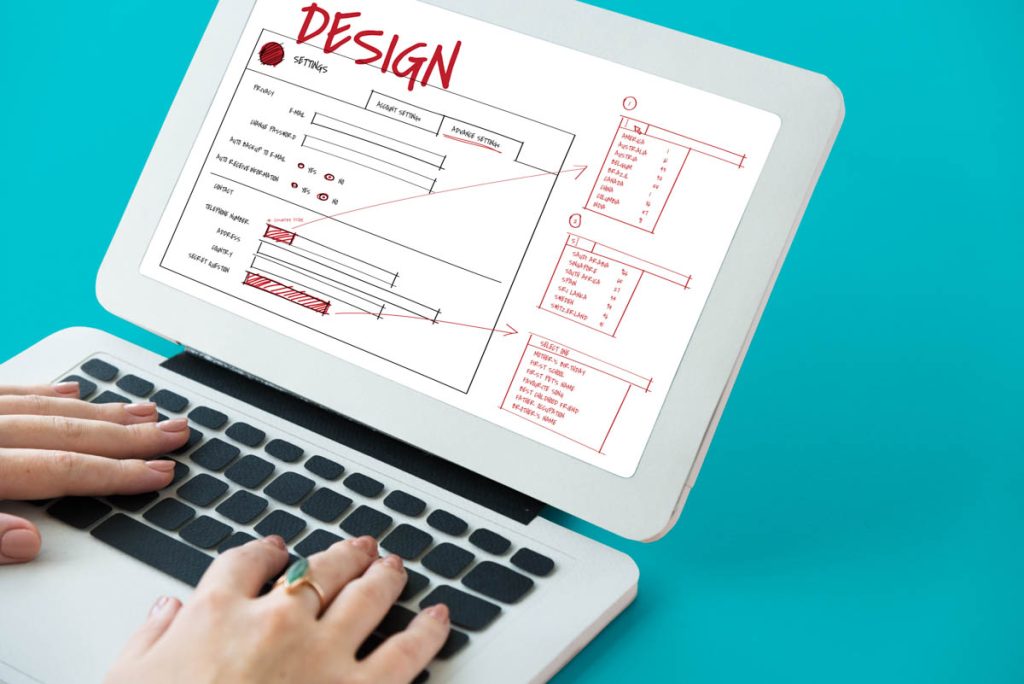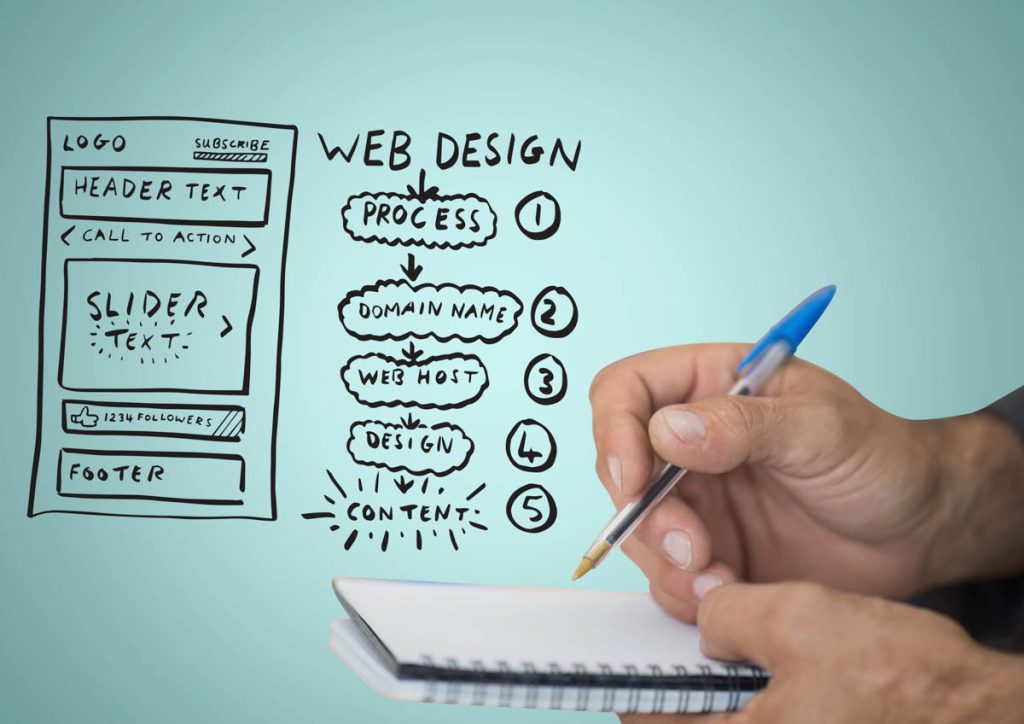Table of Contents
Choosing the Right Web Design Service Provider
Choosing the right web design service provider – When searching for a web design service provider, consider working with a design agency for your business.s should be well-versed in digital marketing strategies. provider is essential for a successful website. Start by defining your needs like purpose, audience, and ensure that your project aligns with current design trends. budget. Check their portfolio to see aesthetic and functional quality. A professional web design company can significantly enhance your online presence, their experience in your industry and read reviews to understand client experiences. Communication should be clear and responsive. Compare prices and check for any Be wary of hidden costs when you choose a design firm for your web development skills.. Make sure they offer services like SEO, e-commerce, and post-launch support. Prioritise those who offer custom solutions and have strong technical skills. There’s more to uncover if you want to ensure you’ve made the best choice.

Define Your Needs before choosing the right web agency
Before you choose a web design company, evaluate their portfolio carefully. web design service provider, it’s crucial to clearly define your specific needs and objectives. Start by identifying the key features you want when you build a website with a top web design firm. primary purpose of your website. Are you looking to create an e-commerce platform, a portfolio for your creative work, a blog, or a company informational siteConsider asking about their experience with professional web design. Knowing the main goal will help you focus on the features and functionalities that are most important.
Next, consider your target audience. Understanding who will visit your site can guide design decisions to better meet their expectations. For instance, a site aimed at professionals might require a more polished and formal design, while a site targeting younger users could benefit from a more vibrant and interactive layout offered by an experienced web design service.
Also, think about the technical requirements. Do you need a content management system (CMS) for easy updates, or will a static site suffice when you work with a web design agency for your business? Will you require advanced functionalities such as e-commerce capabilities, user login features, or integration with third-party services like social media or email marketing tools? Clarifying these needs beforehand will save you time and ensure you select a provider that can meet them.
Budget is another critical factor. Knowing how much you’re willing to spend will help you narrow down your options. Keep in mind that a higher price doesn’t always mean better quality, but a very low budget might limit your choices and the quality of the end product.
Lastly, outline your timeline for choosing the right web designer. If you have a specific launch date, make sure to communicate this to potential providers. A clear timeline helps set expectations and ensures that both you and the provider stay on track. Defining your needs upfront makes the entire process smoother and more efficient.
Check Portfolio when choosing the right web design service provider
When evaluating potential web design service providers, you should check their portfolio to assess the quality and style of their previous work. A portfolio is a visual representation of a designer’s capabilities and creativity, offering you a firsthand look at what they can deliver. Don’t just glance at it; take the time to thoroughly examine the projects they’ve completed.
Pay attention to the variety in the portfolio. A diverse range of projects indicates that the provider is versatile and can adapt to different design requirements. Look for examples that align with your business needs. If you run an e-commerce site, for instance, see if they have experience designing robust online stores. If your focus is on a blog or a content-heavy site, check for designs that prioritize readability and user engagement.

Evaluate the options for a responsive web design that meets your needs. Aesthetics and functionality are equally important when you work with a design agency for your business. of the sites in the portfolio. Are they visually appealing? Do they load quickly and operate smoothly? A good web design service provider should excel in both form and function, particularly in responsive web design. Additionally, check if their designs are mobile-responsive. In today’s digital age, having a site that works well on all devices is crucial.
Don’t hesitate to click through the live websites require ongoing maintenance and updates from a skilled web developer. featured in the portfolio. This will give you a sense of the user experience and how the design performs in a real-world setting. Take note of any interactive elements and how intuitive the navigation is.
Lastly, read any accompanying Case studies can showcase how a design agency can help clients achieve their goals. Consider including tips for choosing the right web design and development agency or project descriptions. These often provide insights into the challenges faced and solutions implemented, giving you a deeper understanding of the provider’s capabilities and problem-solving skills.
Assess Experience
When assessing a web design service provider’s experience, you’ll want to look at their portfolio highlights to gauge their capabilities. Consider if they have industry expertise relevant to your business needs. This will help ensure they’re equipped to handle your specific project requirements, especially if you’re a business owner.
Portfolio Highlights
Evaluating a web design service provider’s graphic design capabilities is crucial for a successful project. portfolio Understanding their experience and capabilities is crucial for selecting the right design partner. Start by looking at the diversity of their previous projects. A varied portfolio demonstrates that they can handle different styles, functionalities, and complexities in design websites. This versatility is essential because it shows they can adapt to your specific needs, no matter how unique or challenging.
Next, focus on the quality of the designs. Are the websites visually appealing and user-friendly? High-quality design should not only look good but also offer a seamless user experience. Check if the sites are responsive, as mobile-friendliness is a must in today’s digital landscape. Look for consistency in excellence across various projects, which indicates reliability.
Pay attention to the types of clients they’ve worked with to gauge their experience as a good web design company. While this might overlap with industry expertise, it’s still useful to see if they’ve collaborated with both small businesses and larger enterprises. This range shows they can scale their solutions according to different client needs, highlighting their track record. Lastly, don’t hesitate to reach out to past clients for testimonials. Their feedback can provide insights into the effectiveness of your website design service. valuable insights into the service provider’s professionalism and ability to meet deadlines.
Industry Expertise
While a strong portfolio showcases a provider’s design prowess, their industry expertise Clear communication can further assure you that they understand the needs of the business owner. unique challenges and requirements of your sector. When choosing a web design service provider, it’s crucial to assess their experience within your specific industry. This ensures they’re familiar with the nuances, trends, and regulations that could impact your website’s effectiveness and compliance.
Look for case studies or client testimonials in their portfolio that reflect their work in your industry. Have they successfully tackled projects similar to yours? A provider with relevant experience will be more adept at anticipating potential pitfalls and offering solutions tailored to your needs.
Don’t hesitate to ask questions about their past projects. How did they handle industry-specific challenges? What strategies did they employ to meet their clients’ goals? Their answers can give you a better understanding of their expertise and problem-solving capabilities.
Read Reviews
Reading reviews from past clients can give you valuable insights into the reliability and quality of a web design service provider. When you’re considering different companies, it’s crucial to know how they’ve performed in the past. Reviews can highlight their strengths and weaknesses, helping you make an informed decision when choosing the right web designer.
Start by checking out reviews on reputable platforms like Google, Yelp, or specialized web design review sites. These platforms often feature detailed accounts of clients’ experiences, including what went well and what didn’t. Look for patterns in the feedback. If multiple clients praise the provider’s creativity in website design but complain about missed deadlines, you’ve got a clearer picture of what to expect.
When choosing a web design agency, you should rely on the ratings and testimonials of previous clients.; read the comments. The stars might give you an overall sense, but the real value is in the specifics. Comments can provide context that numbers alone can’t—like how the company handled a crisis or adapted to specific requests.
Also, pay attention to how the web designer responds to criticism. A company that replies to negative reviews with professionalism and a willingness to rectify issues shows they care about customer satisfaction. On the other hand, ignoring or dismissing complaints can be a red flag.
Lastly, seek out case studies or testimonials on the provider’s own website. While these will naturally be more positive, they can still offer valuable insights into the projects they’ve handled and the results they’ve achieved.
Evaluate Communication
After gathering insights from reviews, the next step is to evaluate the communication style of the web design service provider. Effective communication with your design team is crucial for ensuring your vision is accurately translated into the final product and aligns with modern design trends. Start by observing their responsiveness. Do they reply to your emails promptly? Quick responses indicate that they’re organized and value your time.
Next, assess their clarity. When they explain technical aspects, are they easy to understand? A good provider should be able to break down complex concepts into simple terms. This ensures you’re always on the same page and can make informed decisions.
Another key factor is their willingness to listen. During initial consultations, notice if they’re genuinely interested in understanding your needs and goals. Are they asking insightful questions? If they seem more focused on pushing their own agenda, it might be a red flag.
You should also evaluate their problem-solving approach. How do they handle potential challenges or changes in the project scope? Their ability to adapt and find solutions reflects their experience and flexibility, both critical for a smooth collaboration.
Moreover, consider their preferred communication channels. Are they open to using the platforms you’re comfortable with, whether it’s email, phone calls, or video meetings? Flexibility in communication methods can significantly enhance the workflow and reduce misunderstandings.
Lastly, check if they provide regular updates and progress reports. Consistent communication helps keep the project on track and allows for timely adjustments if needed. By thoroughly evaluating these aspects, you’ll ensure a productive and harmonious working relationship with your chosen web design service provider.
Consider Pricing before you choose a web design agency
When considering pricing, you’ll want to compare different service packages to see what’s included. Be sure to assess any hidden costs that could surprise you later. Finally, evaluate the available payment options to find what fits your budget best when hiring a web design company.
Compare Service Packages
To make an informed decision, compare the service packages offered by different web design providers and consider how their pricing aligns with your budget. You’ll notice that some providers offer a variety of packages, ranging from basic to premium. Basic packages may include essential features like a simple website layout and limited support, while premium packages might offer advanced features like custom designs, enhanced SEO, and ongoing maintenance.

When comparing these packages, think about what your website truly needs. A basic package might be tempting due to its lower cost, but it might not cover all your requirements. On the other hand, a marketing agency may provide additional insights into your web design needs. premium package might offer more than you need, leading to unnecessary expenses. Balance your needs with your budget to ensure you’re not overpaying for features you’ll never use.
Look closely at what’s included in each package. Some packages might have attractive pricing but lack crucial elements like Mobile optimization is a key factor to consider when selecting a web design and development agency. or e-commerce capabilities. Be sure to list your must-haves and see which package meets these criteria. By doing so, you can find the right web design agency that offers the best value for your money, ensuring your website is both functional and cost-effective.
Assess Hidden Costs
In addition to the advertised pricing, it’s crucial to assess any hidden costs that might arise during or after the web design process. Sometimes, these extra charges can significantly increase your overall expenditure. You’ll want to closely examine the best web design agencies available. fine print of any contract or agreement to identify potential fees for things like additional revisions, ongoing maintenance, or extra features that weren’t included in the initial package.
When choosing the right web design service provider, you have to be be wary of costs related to third-party integrations or plugins. Many web design services rely on third-party tools to enhance the functionality of your site. While the base price might cover the initial setup, you could end up paying for subscriptions or updates down the road. Additionally, check if there are fees for hosting or domain registration, which are often separate from the design costs.
Another area to scrutinize is post-launch support. Some web design companies offer minimal support after the project is completed, charging extra for any help you might need later. Knowing what’s included in your package and what’s considered an add-on can save you from unexpected expenses. By being thorough, you’ll ensure that the final cost aligns with your budget and expectations.
Evaluate Payment Options
Evaluating payment options is essential to ensure the web design service fits within your budget and financial planning. You don’t want to be caught off guard by unexpected costs or inconvenient payment terms. Here are some key points to consider when assessing payment options:
- Upfront Costs: Check if the provider requires a significant upfront payment. This can affect your cash flow, so make sure it’s manageable.
- Payment Plans: Look for providers that offer flexible payment plans. Monthly or milestone-based payments can be easier on your wallet.
- Hidden Fees: Be wary of hidden fees like setup charges, maintenance fees, or extra costs for revisions. Clarify these before signing any contract.
- Discounts and Packages: Some providers offer discounts for long-term commitments or bundled services. These can save you money in the long run.
- Refund Policy: Understand the provider’s refund policy. In case the service doesn’t meet your expectations, you’ll want to know if you can get your money back.
Review Services Offered
When choosing the right web design service provider, review the provided services offered, ensure the web design provider A comprehensive service covers everything from initial concept to website design and development. ongoing maintenance. You want a provider that can handle all stages of the web design process. This includes initial consultations to understand your needs and goals, wireframing, and mockups, as well as the actual design and development of the site. They should provide a comprehensive suite of services that ensures your website is not only visually appealing but also functional and user-friendly, making them a reliable design partner.

Check if they offer Responsive design is essential for any website design agency aiming for mobile optimization., which is crucial for ensuring your site looks great on all devices, from desktops to smartphones. SEO optimization is another essential service to look for, as it will help your website rank higher in search engine results, driving more traffic to your site. Additionally, inquire about content creation services, such as copywriting and multimedia production, to ensure your website’s content is engaging and relevant.
It’s also important to find out if they provide e-commerce solutions if you’re planning to sell products or services online. Make sure they offer secure payment gateways and a robust shopping cart system. Don’t forget to ask about their experience with integrating third-party tools and plugins, which can enhance your website’s functionality.
Lastly,choosing the right web design service provider, you will need an ongoing maintenance and support. Websites require regular updates, security checks, and occasional troubleshooting. Ensure the provider offers post-launch support to keep your site running smoothly. By thoroughly reviewing the services offered, you can be confident that the web design provider you choose will meet all your needs and help your online presence thrive.
Look for Custom Solutions
After evaluating the range of services, it’s equally important to seek custom solutions tailored specifically to your business needs. Off-the-shelf web design services might seem convenient, but they often fail to capture the unique essence and requirements of your brand. Custom solutions from a skilled design team ensure your website stands out and functions exactly as you envision. Here’s why you should prioritize custom web design:
First, a custom solution from an experienced web development company aligns perfectly with your brand identity. Every business has a unique story, and your website should reflect that. From color schemes to layout, everything should mirror your brand’s personality.
Second, custom designs offer better scalability. Your business will grow, and your website should be able to grow with it. Custom solutions make it easier to add new features or expand existing ones without compromising the site’s integrity.
Third, user experience (UX) is significantly enhanced with custom designs. Standard templates might not cater to the specific needs of your audience. A tailored approach ensures your visitors have a seamless and engaging experience, increasing the likelihood of conversions.
Fourth, custom solutions often integrate better with your existing systems. Whether it’s CRM software, email marketing tools, or e-commerce platforms, a custom site can be designed to work seamlessly with what you already use, boosting efficiency.
Fifth, a custom web design often results in better SEO performance. Unique content and structure tailored to your business can improve your site’s search engine ranking, driving more organic traffic.
Benefits of custom solutions include:
- Brand Alignment: Reflects your unique brand identity.
- Scalability is an important factor to consider when you build a website that can grow with your business: Grows with your business needs.
- Enhanced UX: Caters specifically to your audience.
- System Integration is crucial when collaborating with a development company.: Seamlessly works with your existing tools.
- Better SEO can be achieved by hiring a good web design company.: Improves search engine ranking.
Choosing the right web design service provider that offers custom solutions ensures your website isn’t just another template but a powerful tool tailored to your business.
Analyse Technical Skills
To ensure you choose the right web design service provider, it’s crucial to analyze their technical skills thoroughly. You don’t want to end up with a site that looks great but lacks functionality. Start by checking their proficiency in key web technologies like HTML, CSS, JavaScript, and responsive design for a new website. These are the building blocks of any good website. If they can’t demonstrate expertise in these areas, it’s a red flag.
Next, inquire about their experience with content management systems (CMS) like WordPress, Joomla, or Drupal. A proficient provider should be comfortable working with various CMS platforms to suit your specific needs. Also, ask if they have experience with web design agencies. e-commerce platforms such as Shopify or Magento if you plan to run an online store.
Another vital aspect is their understanding of SEO best practices. A beautiful website is useless if it doesn’t rank well on search engines, so you should consider design trends that improve SEO. Ensure they incorporate SEO principles right from the development stage, including mobile optimization and fast loading times.
Additionally, consider their ability to handle advanced features like custom coding, API integrations, and database management. These skills indicate they can tailor-make solutions to fit your unique requirements, rather than providing cookie-cutter templates.
Don’t forget to ask for a portfolio of their previous work. Real-world examples can give you a clearer picture of their technical prowess and versatility in design websites. Finally, check for any relevant certifications or continuous education in web development. This demonstrates a commitment to staying current with evolving technologies.
